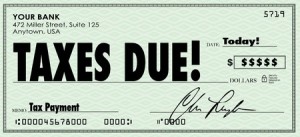The Tax Court of New Jersey recently issued three decisions that should be of interest to New Jersey municipalities. All of the cases involved a request for income and expense information from the municipal tax assessor pursuant to N.J.S.A. 54:4-34, commonly known as Chapter 91.
Chapter 91 authorizes New Jersey municipal tax assessors to seek expense and income information from property owners and allows a municipality to dismiss a tax appeal if the owner fails or refuses to respond within the required timeframe. Due to the harsh penalties for failing to respond to a Chapter 91 request, courts strictly enforce the statute’s procedural requirements against tax assessors. While a Chapter 91 request need not be impeccably written, the assessor “must utilize ‘clear and unequivocal language’ to provide taxpayers with fair notice of their Chapter 91 obligations.” ML Plainsboro Ltd. v. Plainsboro Township, 16 N.J. Tax 250, 256 (App. Div. 1997)
Two of the Tax Court’s most recent decisions addressing Chapter 91 compliance involved the Township of Berkley Heights. In both cases, the plaintiff filed a challenge to the 2015 tax year assessment on its property and the township moved to dismiss the complaint for failure to respond to a Chapter 91 request for income and expense data.
In both Strategic Long Term Care of New Jersey at Berkeley Heights v. Township of Berkeley Heights and 34 Russo Place v. Township of Berkeley Heights, the Tax Court found the Chapter 91 request was vague and ambiguous. Accordingly, it refused to dismiss the plaintiff’s challenge to the 2015 tax year assessment on its property. In reaching its decisions, the court noted that the first sentence of the assessor’s letter requested that the taxpayer “submit to this office income and expense data on the enclosed forms.” The attached forms, however, failed to identify the period for which plaintiff was required to furnish such income and expense data. Accordingly, the court found “there is no indication in the Chapter 91 Request as to what tax year this income and expense data will be utilized for purposes of fixing the tax assessment on the subject property.”
The third case, Monmouth Middlesex Realty LLC v. Borough of Freehold, involved the borough’s motion to dismiss plaintiff’s 2014 and 2015 local property tax appeals for providing false or fraudulent information in response to the tax assessor’s Chapter 91 request.
The property at issue is a medical condominium owned by two doctors who also owned and operated a medical practice that fully occupied the property. Because of the common ownership, the doctors decided the amount of rent the practice should pay the plaintiff. They were also fully responsible for the expenses associated with ownership of the property. The Freehold tax assessor sent a Chapter 91 request for income and expense information for the years 2012 and 2013. In bold text, the 2012 letter stated: “Please note that if your property is owner occupied or you did not own the property for all of 2011, you must indicate that on the form, sign, and return the form by the return date.” The subsequent letters contained the same instructions.
In response, on each of the provided forms, one of plaintiff’s owners wrote “owner occupied” and left all of the delineated items for income and expenses blank. Defendant moved to dismiss plaintiff’s challenges for providing false or fraudulent information in response to the Chapter 91 requests.
The NJ Tax Court held that the plaintiff’s response to the Chapter 91 request was not improper, finding that an average property owner could reasonably understand the term “owner occupied” as the plaintiff did. “The Chapter 91 requests here were bereft of any notice or direction (even by way of an example) that ‘owner occupied’ does not include properties for which rents are being received from any source including from related entities, whether or not the rents are subjectively deemed to be economic,” the court held.
The court further noted that there is no evidence that the plaintiff consulted with counsel while responding to the Chapter 91 requests so that it was or should have been aware of the precise legal interpretation of the term “owner occupied.”
For more information about the New Jersey Tax Court’s decisions or the legal issues involved, we encourage you to contact a member of Scarinci Hollenbeck’s Government Law Group

